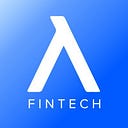Apollo Releases Android Wallet App
Got the Apollo Wallet app?
This week, Apollo Foundation released Android mobile Wallet app so you can take the first all-in-one cryptocurrency that incorporates every mainstream feature wherever you go. Apollo (APL) has the best privacy features in the industry, and it’s an unregulatable platform. (See Olympus Protocol 2.0 release.)
Apollo Wallet is available on Google Play. (The IOS version will be available upon completion of Apple Store review.)
The new mobile app includes a few changes:
1. Redesigned interface for desktop wallets (Windows, Mac, Linux) as well as web wallet. There are updates to two-factor authentication (2FA) and secret key features.
2. Minor issues fixed.
3. Java updated to Version 11.
4. Transport app updated.
Download the latest version of Apollo Wallet to keep your funds secure and private.
Recent Milestones
This week, our development team released Olympus Protocol 2.0 which includes:
1. Encrypted Transport IP Masking 2.0 (the most effective IP Masking in crypto)
2. Database-Level Coin Mixing (“Apollo Mixer”)
Expect more utility and privacy from Apollo in 2019.
Our world-class development team is building Olympus Protocol 3.0 which will include (1) Advanced IP Masking, (2) Private Ledger, and (3) Decentralized Exchange. These will make APL transactions extremely secure and government-proof — delivering on the foundation’s promise to create an unregulatable currency.
To learn more, see Apollo’s whitepaper and technical paper.
Other Milestones
Apollo (APL) exceeded $1 million (278 bitcoins) in 24-hour trading volume from Nov. 25–26. This shows growing interest in the all-in-one and privacy-focused currency.
Earlier this month, the Hermes 1.0 update (Step Two) incorporated two-second block speed that settles transactions in just as fast. In comparison, Ripple’s (XRP) settlement time is four seconds. (See graph.)
Because of Apollo blockchain’s extreme efficiency, its block speed can be increased to cycle times not previously possible. The team has successfully tested its two-second block confirmation speed and is integrating the new capability onto the mainnet.
